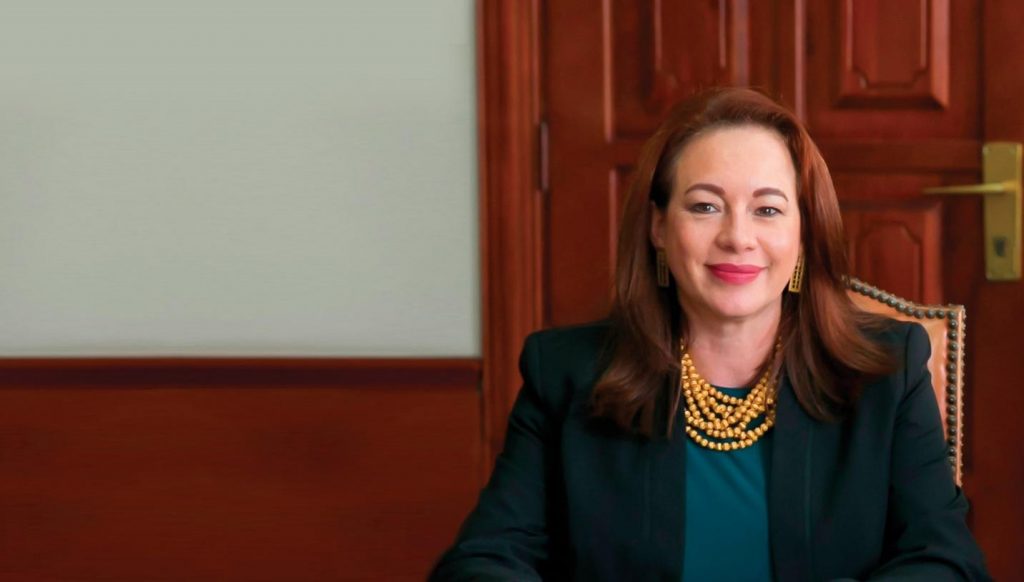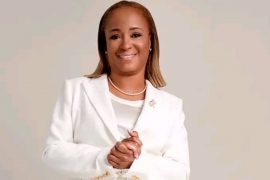I once read an inspiring quote by Judy Garland which states; “Always be a first rate version of yourself and not a second rate version of someone else.”
I have come to learn of someone who beyond self is taking first position in almost every path she threads on. From academia, foreign affairs, national defense, cultural heritage, and international policy, María Fernanda Espinosa, has left no stone unturned in her trailblazing journey in life.
Espinosa was the President of the United Nations General Assembly for the 73rd session, which she assumed in September 2018 to 17 September 2019.
She began her professional career at a young age of seventeen when she got her first job at the National Institute for Heritage in Ecuador. The job connected her very early on to indigenous people’s rights and environmental issues. And as she continued on to various graduate programs, Espinosa began cultivating a reputation for her expertise on the Amazon region, climate change, and sustainable development—not to mention social science, linguistics, and political science.
Espinosa’s studies may have been wide-ranging, but they were far from unfocused. When she came to the United States to pursue a PhD at Rutgers University, she knew she needed a discipline that would reflect the diversity of her interests.
She chose geography because she thought it was the most holistic and comprehensive career choice. It brought together everything from the environment to politics, economics, and anthropology. It was the combination of that academic work and her work at the ground level that led her to work for the International Union for the Conservation of Nature and later the UN.”
A public servant for more than a decade now, Espinosa has many firsts to her name: the first woman to serve as Ecuador’s minister of national defense, the first woman to be appointed as Ecuador’s permanent representative to the United Nations in New York, and the first Latina woman to be elected as president of the UN General Assembly. But Espinosa refuses to take her position for granted. first
In an Interview with the Hispanic Executive, she said, “As a woman, especially a woman from Latin America, you are required to perform twice as hard just to show that you are fit for the purpose,” she points out. “As Ecuador’s minister of foreign affairs and minister of defense, I was not what people expected: the diplomatic world and military are both very male-dominated.”
“Us women, we deserve to be in positions of power. And it’s not just about the numbers. When women participate in decision-making processes, at the UN or as mediators or wherever else they choose, outcomes improve, and the sustainability of the agreements is increased.”
But Espinosa was not satisfied with proving herself the equal of her male colleagues. Wherever she went, her first priority was to execute change on a broader level by looking at public policies through a women-centered lens. During her tenure as minister of defense, she passed Ecuador’s first policy on gender equality and violence against women in the military. As minister of foreign affairs, she helped pass the first policy on gender equality for those in Ecuador’s diplomatic service. Those laws and policies remain in place to this day.
“Us women, we deserve to be in positions of power,” President Espinosa stresses. “It’s a demographic reality: we are 50 percent of the population. And it’s not just about the numbers. When women participate in decision-making processes, at the UN or as mediators or wherever else they choose, outcomes improve, and the sustainability of the agreements is increased.”
This past year, Espinosa organized the UN’s first meeting for women in positions of power, including all nineteen women working as the head of state and government in UN member states. Her campaign for gender equality, as well as the global campaign Espinosa launched to reduce plastic pollution, is what helps her feel that she has delivered on the promises she made at the beginning of her yearlong term as president.
“Of course, you can always do more. The world is facing very difficult times right now, from the climate crisis to immigration,” says Espinosa. “But I wanted to leave a footprint that made people say, ‘Wow, Latino women really can make a difference.’”
Having recently left office in September, Espinosa is now focusing on finding ways to continue the political and social momentum that marked her presidency. “We were able to eliminate single-use plastics from the UN, but that has to be multiplied, and the campaign has to continue. Next year will be a very important year for the UN, for women’s rights, and for pollution,” she asserts. “I have pushed to make sure that we gather interest and traction by addressing a commitment of public opinion regarding the role of the UN, the importance of multilateralism, and the UN that the public needs and wants for the future.”
Espinosa has no intention of backing away from that effort to make the UN “relevant to all” now that she’s served out her presidency. Wherever she is in the future, Espinosa promises she will continue to contribute to and be connected to that process. In fact, that sense of relevance is the essence of what the UN is and must constantly strive to be, Espinosa says.
“We are here for a purpose, and that purpose is to serve the people—especially the people in need,” Espinosa says simply. “There are so many people in need, and the numbers are only increasing. As we work here in this huge building, we must see that and remind ourselves because that is the very reason why the UN is so important.”




